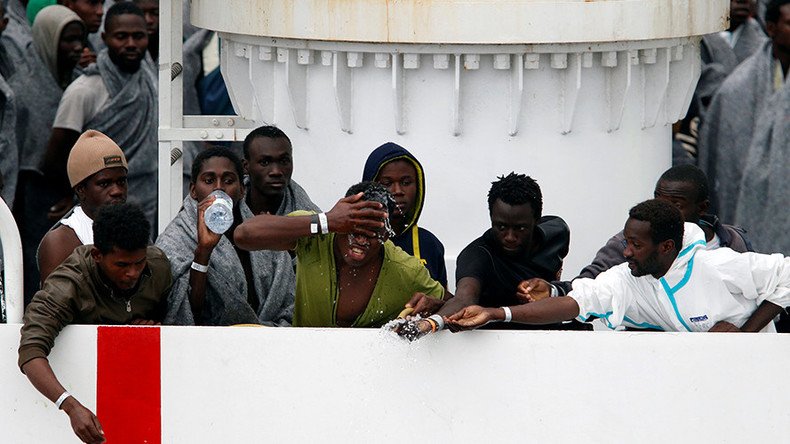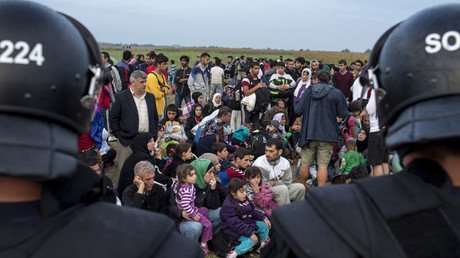EU refugee relocation plan ‘a disappointment’ – UN Refugee Agency chief

The UN's High Commissioner for Refugees, Filippo Grandi, has acknowledged the failure of the EU solidarity plan after only 20,000 out of the 160,000 refugees were relocated as part of the program.
“It has been a disappointment on the continental level,” said Grandi.
“Only a few countries in Europe – Greece and Italy, who are on the border in the EU, and Germany, Sweden, Austria – they are the ones who took most of the responsibility," he added, as cited by AFP.
According to the High Commissioner, the EU’s failure raises doubts about the prospects of finding new homes for migrants in the world.
“If Europe is not able to share responsibility, a union of rich countries... how can we tell the rest of the world to take refugees?” he said.
Grandi was speaking in Barcelona, where he launched the #SingAndPass campaign to help child refugees together with football powerhouse FC Barcelona.
The European Union came up with the solidarity plan in 2015 at the peak of the European refugee crisis in order to relief pressure on Mediterranean countries Italy and Greece, which were the first to meet the waves of migrants arriving from the Middle East and North Africa.
However, the initiative led to a split within the bloc as some member states refused to take in the number of refugees assigned by the plan.
Around 20,000 refugees have been accommodated by the 28 EU member states since 2015, according to the European Commission.
Relocation works if there is political will. Call on Member States to comply with legal obligations & contribute fairly and proportionally. pic.twitter.com/e0CUIUj9bj
— European Commission (@EU_Commission) 13 июня 2017 г.
On Wednesday, the Commission has launched infringement procedures against Poland, Hungary and Czech Republic for not fulfilling their obligations in accordance with the 2015 plan.
Polish and Hungarian authorities refused to participate in the program, while the Czech Republic only took in 12 refugees.
The European Commission hopes that the proceedings would result in the top EU court being able to impose fines on the countries.
"I regret to see that, despite our repeated calls to pledge to relocate, the Czech Republic, Hungary and Poland have not yet taken the necessary action," said Dimitris Avramopoulos, the EU’s migration commissioner, as cited by Reuters.
Polish Deputy Foreign Minister Konrad Szymanski said that Poland was ready for a legal battle, which may take several months or even years.
Szymanski expressed regret that the EU decided to raise tensions by going to court, saying: “I don’t think it makes sense politically,” the Polish Press Agency reported.
Earlier in May, Spanish Foreign Minister Alfonso Dastis suggested that the number of refugees to be resettled as part of the EU plan should be decreased from 160,000 to around 60,000.
Meanwhile, the Italian Interior Ministry has rejected a call by Rome’s mayor, Virginia Raggi, to impose a “moratorium” on foreigners resettling in the city, La Repubblica reported.
The Italian capital could still find room for at least 2,000 migrants, the ministry said.
Mayor Raggi had urged Italian authorities to stop the influx of foreign nationals into the capital city, saying that it was becoming “impossible” and “risky” to accept more people.














